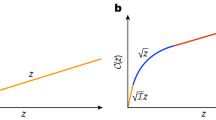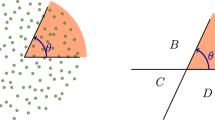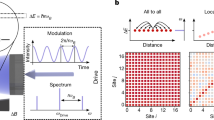Abstract
PROF. E. A. MILNE, in the important paper1 in which he gives an account of an invariant distribution of particles forming an expanding universe in flat space-time, has stated that the geometry adopted in cosmological theories may be chosen arbitrarily, the expression of the laws of Nature being relative to the geometry assumed. A similar view has also been expressed by myself2. The first enunciation of the idea, however, seems to have been due to Poincaré in quite the early days of relativity. It is interesting in this connexion to observe that there is a very simple method of converting the law of motion of a particle expressed in the geometry of Einstein's theory to the corresponding law expressed in any other geometry.
This is a preview of subscription content, access via your institution
Access options
Subscribe to this journal
Receive 51 print issues and online access
$199.00 per year
only $3.90 per issue
Buy this article
- Purchase on SpringerLink
- Instant access to full article PDF
Prices may be subject to local taxes which are calculated during checkout
Similar content being viewed by others
References
Z. Astrophys., 6, Heft 1–2; 1933.
Proc. Roy. Soc., A, 139, 349; 1933.
Proc. Roy. Soc., A, 120, 483; 1928.
Author information
Authors and Affiliations
Rights and permissions
About this article
Cite this article
MILNER, S. Arbitrary Character of World-Geometry. Nature 133, 830 (1934). https://doi.org/10.1038/133830a0
Issue date:
DOI: https://doi.org/10.1038/133830a0
This article is cited by
-
Interpretation of Fermat's Principle
Nature (1935)



